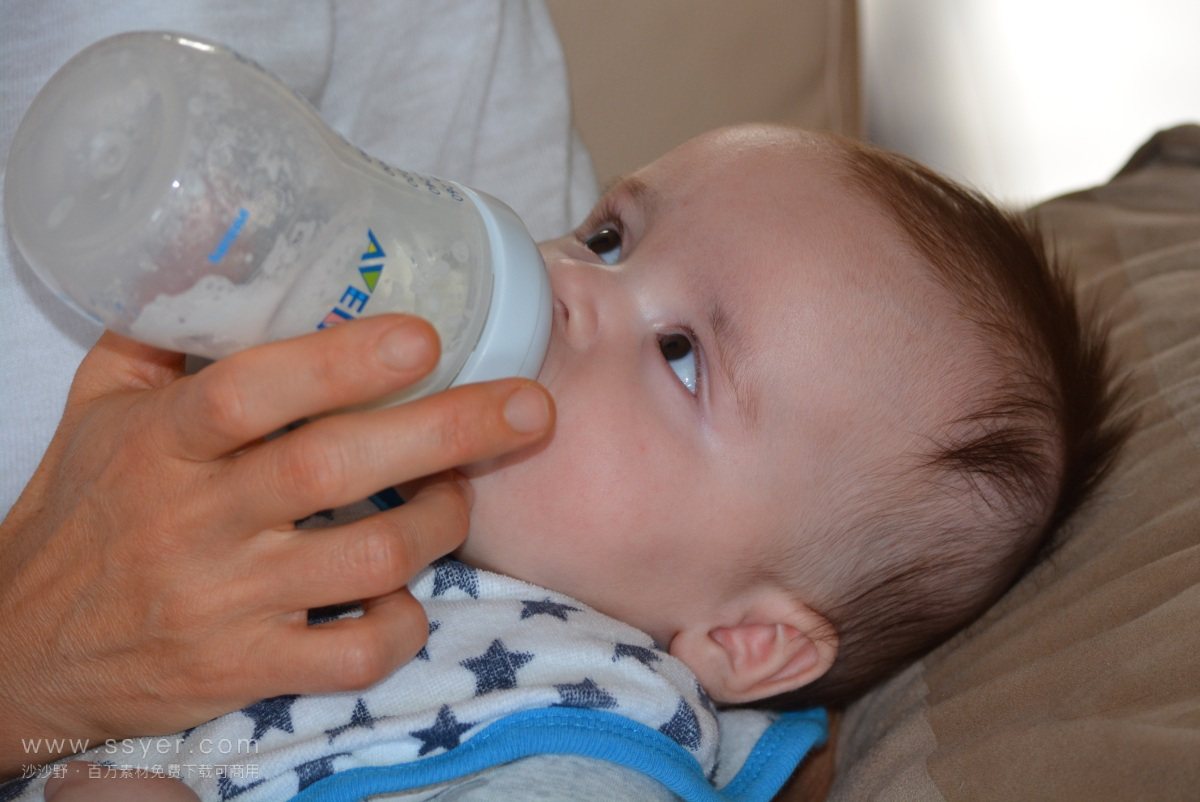婴儿愿意放弃食物,表明利他主义从婴儿期就开始了
婴儿愿意放弃食物,表明利他主义从婴儿期就开始了
Picture this: a 19-month-old hungry baby picks up a delicious snack, but instead of gobbling it up gives it to an adult who appears to want it, too.
想象一下:一个19个月大的饥饿婴儿拿起一份美味的点心,但他没有狼吞虎咽地吃完,而是把它给了一个看起来也想吃的成年人。
Now imagine dozens of different babies of the same age doing the same. And that's exactly what happened during a study published Tuesday that tests the beginnings of altruism in humans.
现在想象一下几十个相同年龄的婴儿在做同样的事情。而这正是周二发表的一项研究中所发生的,该研究测试了人类利他主义的起源。
The babies "looked longingly at the fruit, and then they gave it away!" said Andrew Meltzoff, co-director of the Institute for Learning & Brain Sciences at the University of Washington, in a statement. "We think this captures a kind of baby-sized version of altruistic helping."
华盛顿大学学习与脑科学研究所联合主任安德鲁·梅尔佐夫在一份声明中说,这些婴儿“渴望地看着这些水果,然后就把它们给了别人!”“我们认为这捕捉到了一种婴儿大小的利他主义帮助。”

Meltzoff and his team studied nearly 100 babies who were 19 months old, a time when many babies are starting to have temper tantrums, especially when told no, according to the American Academy of Pediatricians (PDF). This is also the age that babies are likely to hit, bite or scratch others when denied what they want.
根据美国儿科医生学会(PDF)的数据,梅尔佐夫和他的团队研究了近100名19个月大的婴儿,这是许多婴儿开始发脾气的时候,特别是在被告知不的时候。这也是婴儿在被拒绝自己想要的东西时可能会打、咬或抓别人的年龄。
When does altruism begin?
利他主义何时开始?
Food sharing among adult nonhuman primates, such as chimpanzees, is rare, studies show.When they do, it appears to be among close relatives, or when they think it will benefit them by strengthening relationships with other chimps outside their inner circle.
研究表明,成年的非人类灵长类动物,如黑猩猩,很少分享食物。当他们这样做的时候,似乎是在近亲之间,或者当他们认为这样做可以通过加强与其他黑猩猩的关系而使自己受益的时候。
Yet humans often respond to hungry people, whether it's through food banks, fundraisers or sharing their snack or lunch.
然而,人类通常会对饥饿的人做出反应,无论是通过食物银行、筹款活动,还是分享他们的零食或午餐。
"We adults help each other when we see another in need, and we do this even if there is a cost to the self. So we tested the roots of this in infants," said lead author Rodolfo Cortes Barragan, a postdoctoral researcher at the Institute for Learning & Brain Sciences, in a statement.
主要作者鲁道夫·科尔特斯·巴拉甘是学习与脑科学研究所的博士后研究员,他在一份声明中表示:“当我们成年人看到别人需要帮助时,我们会相互帮助,即使这会损害我们自己。所以我们在婴儿身上测试了这一点的根源。”
Using baby fruit favorites such as blueberries, bananas and grapes, the study tested whether the infants would spontaneously, without being asked, give their food to a total stranger.
这项研究使用婴儿最喜欢的水果,如蓝莓、香蕉和葡萄,测试婴儿是否会在没有询问的情况下自发地把食物给一个完全陌生的人。
Babies gave even when hungry
婴儿即使在饥饿的时候也会给予
A second experiment was set up with a different group of 19-month-old babies. In this case, the babies were tested at their snack or meal time, when they were typically hungry. This, researchers thought, would raise the stakes and impact the motivation of the children to keep the fruit for themselves.
第二个实验是在另一组19个月大的婴儿身上进行的。在这种情况下,婴儿在他们通常饥饿的零食或用餐时间进行测试。研究人员认为,这会增加赌注,影响孩子们把水果留给自己的动机。
The babies in the control group did just that. But 37% of the test group who believed the adult was hungry picked up the fruit and gave it away.
对照组的婴儿就是这么做的。但37%的认为成年人饿了的试验组人拿起水果并将其赠送出去。
However, said psychologist Mark Strauss, who directs the Infant and Toddler Development Center at the University of Pittsburgh, "we really don't know that the differential behavior between the two groups has to do with food. It could be that the toddlers recognize in the 'begging condition' that the adult didn't want to drop and they are being helpful.
然而,匹兹堡大学婴幼儿发展中心主任、心理学家马克·施特劳斯说:“我们真的不知道这两组婴儿的不同行为与食物有关。这可能是因为幼儿在“乞讨状态”中意识到大人并不想放弃,而他们正在提供帮助。

"Finally, given that the children may not have been hungry," said Strauss, who was not involved in the study, "there really is no evidence that the children are being altruistic, but rather just being helpful."
“最后,考虑到孩子们可能并不饿,”斯特劳斯说,他没有参与这项研究,“确实没有证据表明孩子们是利他的,而只是乐于助人。”
What did appear to matter, the study found, was if the child had a sibling or came from a society that values what psychologists call "interdependence."
研究发现,真正重要的似乎是,孩子是否有兄弟姐妹,或者来自一个重视心理学家所说的“相互依赖”的社会。
"We think certain family and social experiences make a difference, and continued research would be desirable to more fully understand what maximizes the expression of altruism in young children," Barragan said. "If we can discover how to promote altruism our kids, this could move us toward a more caring society."
巴拉甘说:“我们认为某些家庭和社会经历会产生影响,继续研究将是可取的,以便更充分地了解是什么使幼儿的利他主义表达最大化。”“如果我们能发现如何促进孩子们的利他主义,这可能会推动我们走向一个更有爱心的社会。”


















